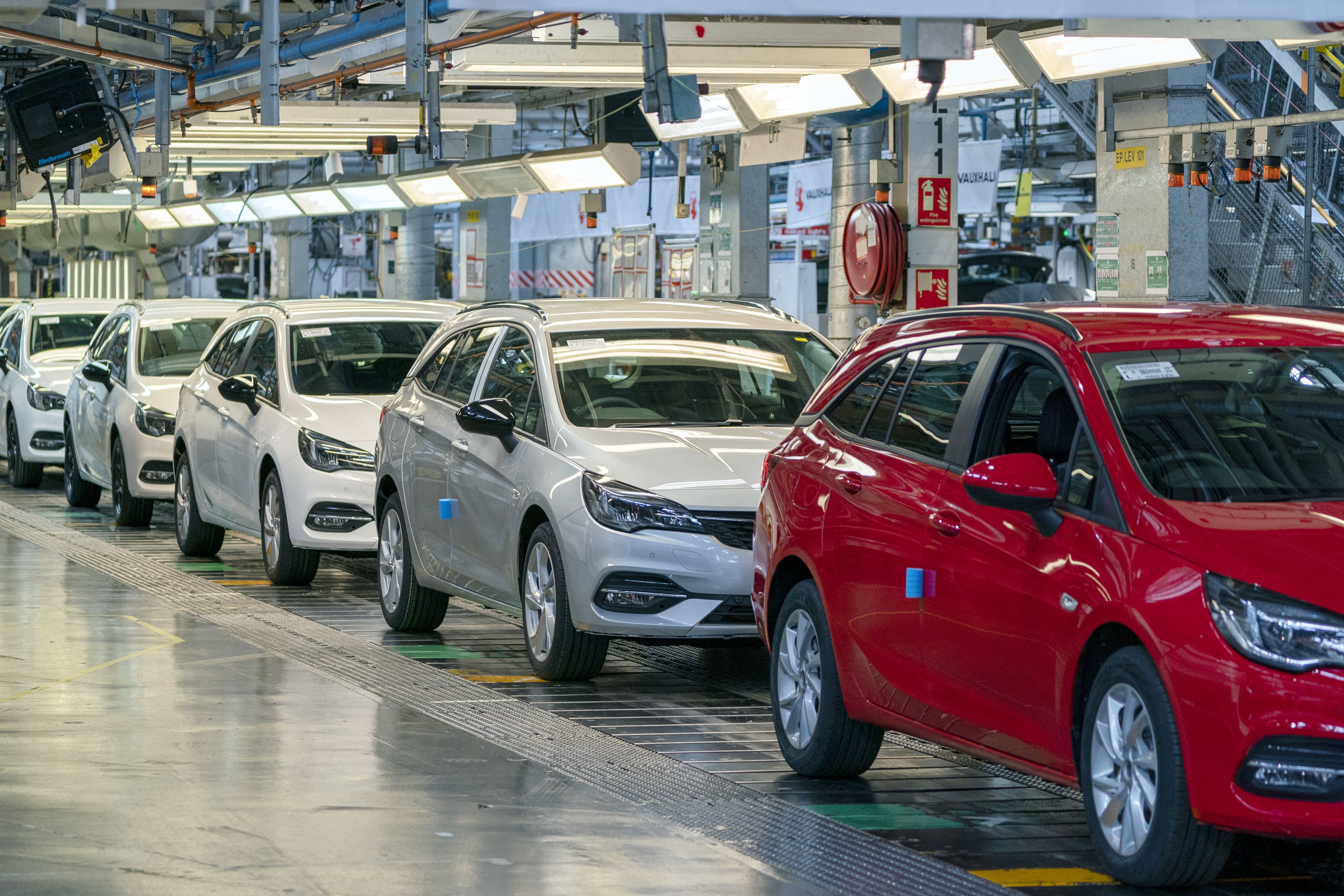Sales of new cars sink to lowest level in three decades
Some 1.61 million new cars were registered in 2022, according to preliminary data released by the Society of Motor Manufacturers and Traders.

Your support helps us to tell the story
From reproductive rights to climate change to Big Tech, The Independent is on the ground when the story is developing. Whether it's investigating the financials of Elon Musk's pro-Trump PAC or producing our latest documentary, 'The A Word', which shines a light on the American women fighting for reproductive rights, we know how important it is to parse out the facts from the messaging.
At such a critical moment in US history, we need reporters on the ground. Your donation allows us to keep sending journalists to speak to both sides of the story.
The Independent is trusted by Americans across the entire political spectrum. And unlike many other quality news outlets, we choose not to lock Americans out of our reporting and analysis with paywalls. We believe quality journalism should be available to everyone, paid for by those who can afford it.
Your support makes all the difference.Supply shortages have been blamed for new car registrations falling to the lowest level since 1992.
Some 1.61 million new cars were registered in 2022, according to the Society of Motor Manufacturers and Traders (SMMT).
That is down 2.0% compared with the 1.65 million registered during the previous 12 months and a quarter below pre-coronavirus levels.
The SMMT said the decline was due to manufacturers being unable to meet demand for new cars due to global supply chain issues such as semiconductor shortages, driven by coronavirus lockdowns in China.
The automotive market remains adrift of its pre-pandemic performance
The UK has reclaimed its position as Europe’s second largest new car market behind Germany after being overtaken by France in recent years.
Battery electric new cars took a market share of 16.6% in 2022, surpassing diesel for the first time to become the second most popular powertrain after petrol.
Some 22.9% of all new cars registered were plug-in vehicles, which includes pure electrics and plug-in hybrids.
Although that was a record high, it represents a smaller year-on-year rise compared with the previous 12 months.
The market share for plug-in vehicles rose from 10.7% in 2020 to 18.6% in 2021.
December saw battery electrics claim their largest ever monthly market share of 32.9%, driven by a large number of Tesla cars being delivered.
The overall new car market recorded its fifth consecutive month of year-on-year growth in December, and the SMMT anticipates that new car registrations will increase by around 15% this year.
SMMT chief executive Mike Hawes described 2022 as “a very difficult year” but insisted there are signs that supply problems are “beginning to ease”.
He said: “Manufacturers have really struggled to be able to make the vehicles in sufficient quantities, primarily due to semiconductor shortages but there are other parts shortages behind that as well.
“Lockdowns in China have not helped, high logistics costs, more pressure on raw materials.
“The complexities of global manufacturing have really been brought to bear heavily on the industry this past year.”
He went on: “The automotive market remains adrift of its pre-pandemic performance but could well buck wider economic trends by delivering significant growth in 2023.
“To secure that growth – which is increasingly zero emission growth – government must help all drivers go electric and compel others to invest more rapidly in nationwide charging infrastructure.”
EVs need to be easier to afford, charge and buy to keep sales on track and ultimately meet the Government’s targets
Mr Hawes called for a “significant ratcheting up of investment” in electric car charging.
Sales of new petrol and diesel cars and vans in the UK will be banned from 2030.
The Nissan Qashqai topped the ranking of overall new car registrations in 2022 with 42,704 recorded, followed by the Vauxhall Corsa, Tesla Model Y, Ford Puma and Mini.
Erin Baker, editorial director at online vehicle marketplace Auto Trader, said: “The bright spot last year was battery electric vehicles (EVs) and hybrids, which accounted for almost one in four of new car sales.
“But we’re worried this is unlikely to last after signs of a fall in consumer demand on our marketplace towards the end of 2022.
“EVs need to be easier to afford, charge and buy to keep sales on track and ultimately meet the Government’s targets.”